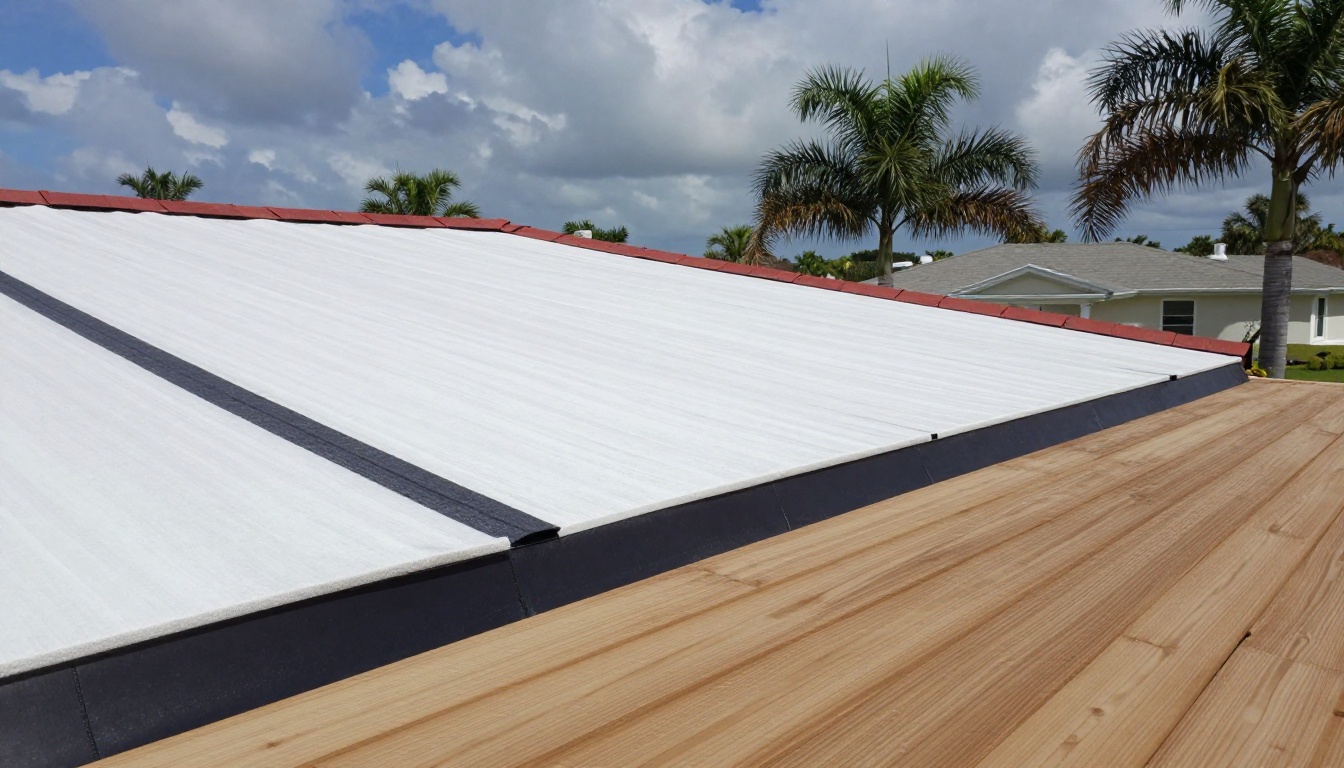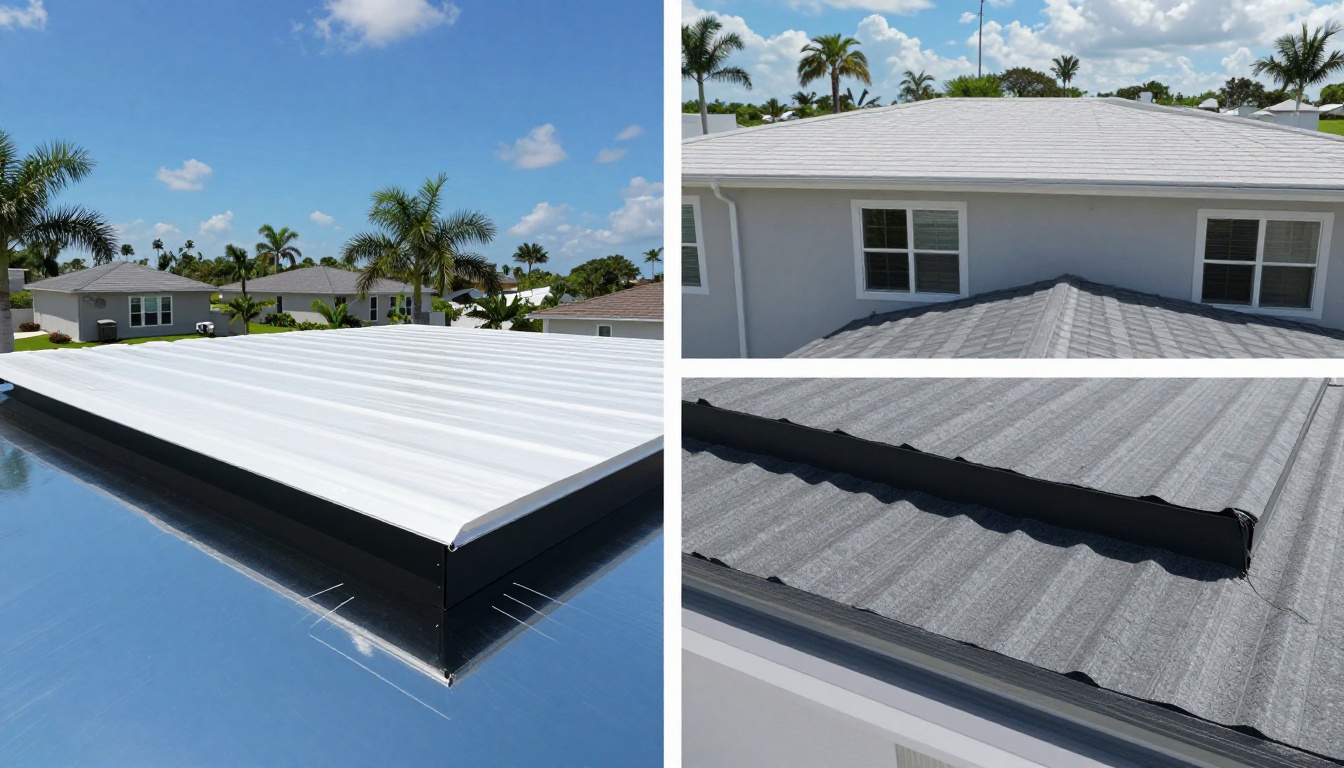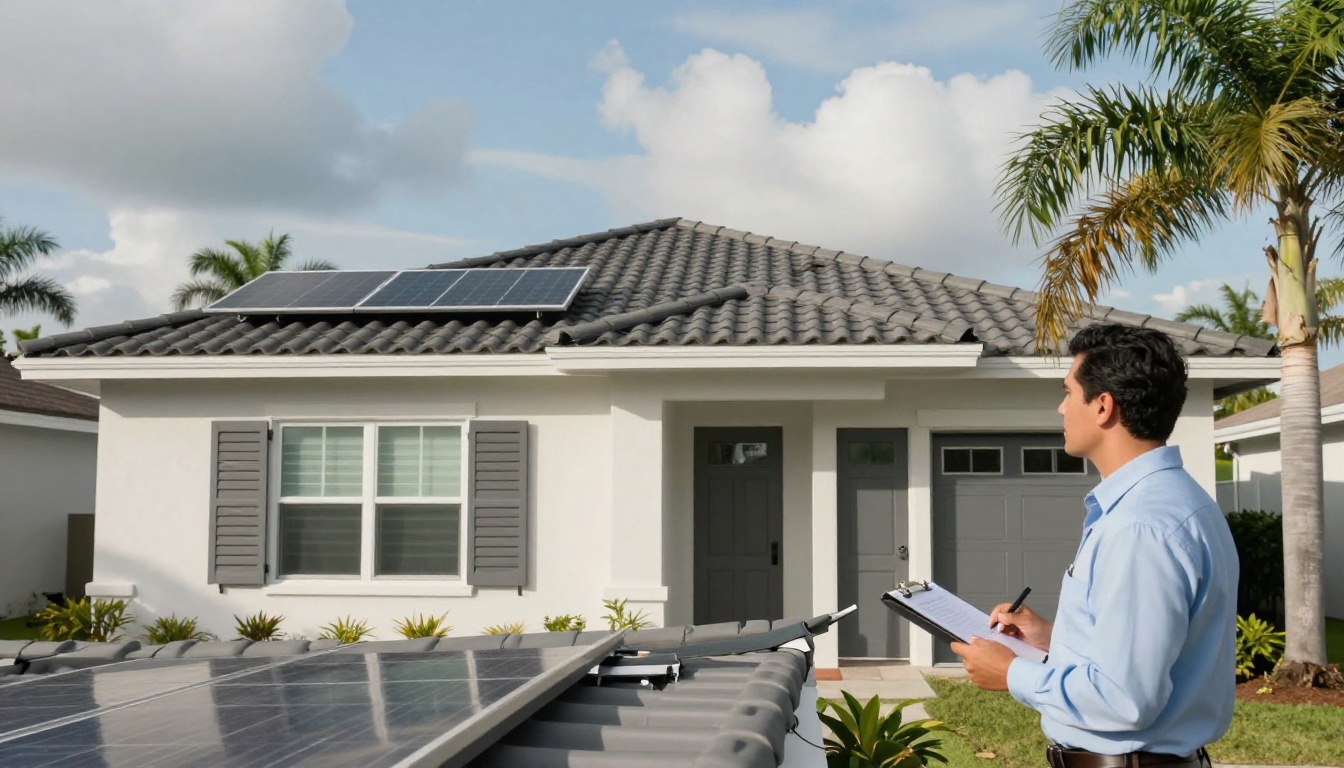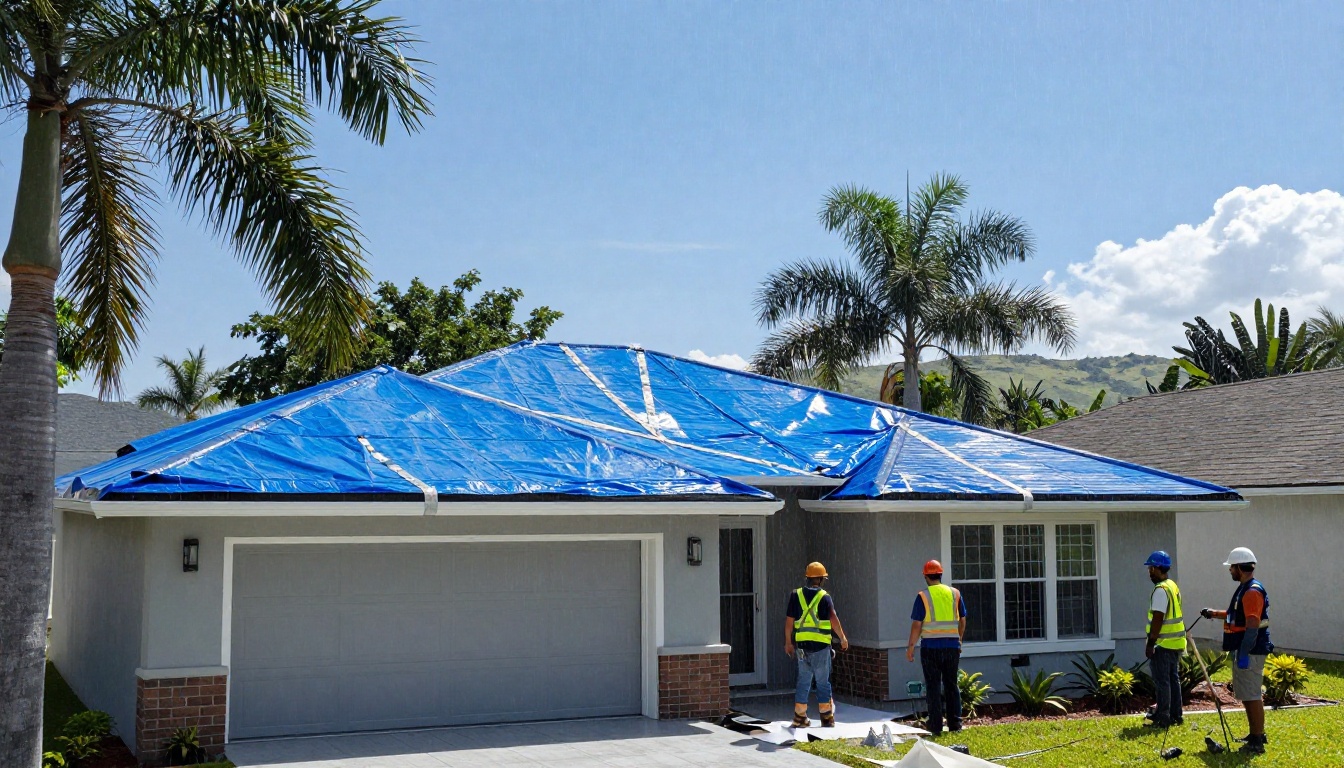How Much Does a New Tile Roof Cost in Cape Coral, FL?
How Much Does a New Tile Roof Cost in Cape Coral, FL?
Overview of Tile Roofing Costs in Cape Coral, FL
If you're considering a new tile roof in Cape Coral, FL, expect costs to range between $8 and $18 per square foot, depending on the materials and complexity of the project. For an average 2,000-square-foot home, this translates to a total investment of approximately $16,000 to $36,000. Tile roofs are a popular choice in Southwest Florida due to their durability and aesthetic appeal, but they often come with a higher price tag compared to other roofing options like asphalt shingles or metal. While the upfront cost is significant, many homeowners find the long-term benefits outweigh the initial expense.
When comparing tile roofing to other materials, it’s important to consider the unique advantages it offers in Florida's climate. Unlike asphalt shingles, which may need replacement every 15-20 years, tile roofs can last 50 years or more with proper maintenance. Additionally, tile roofs provide excellent resistance to fire, wind, and pests, making them a smart investment for homes in hurricane-prone areas. With these factors in mind, choosing a tile roof isn’t just about aesthetics—it’s about protecting your home for decades to come. Next, let’s explore the specific factors that influence the cost of installing a tile roof.
Factors That Impact the Price of a New Tile Roof
The cost of a new tile roof in Cape Coral, FL, is influenced by several key factors, starting with the size of the roof. Larger roofs naturally require more materials and labor, driving up the overall cost. The type of tile you choose—whether clay or concrete—also plays a major role in pricing. Clay tiles are typically more expensive than concrete ones, but both offer unique benefits. Labor costs vary depending on the complexity of the installation, including the roof’s pitch and accessibility. Steeper roofs or those with limited access often require additional time and effort, increasing labor expenses.
Another important factor is the condition of the existing roof. If your current roof has significant damage or requires structural reinforcement to support the weight of heavy tiles, these repairs can add to the total cost. Additionally, if the old roofing material needs to be removed—a process known as tear-off—you’ll incur extra charges. Homes with architectural features like chimneys, skylights, or dormers also tend to have higher installation costs because these elements require precise workmanship. Understanding these variables helps you anticipate potential expenses before starting your project.
Finally, don’t forget about extras such as underlayment upgrades, flashing, or custom design elements. These enhancements can improve the performance and appearance of your tile roof but will increase the budget accordingly. It’s essential to discuss all these details with your contractor during the planning phase. By doing so, you can ensure there are no surprises when the final bill arrives. With this knowledge in hand, let’s dive deeper into the differences between concrete and clay tiles, two popular choices for homeowners in Cape Coral.
Tile Material Options: Concrete vs. Clay
When selecting tiles for your new roof, you’ll likely choose between concrete and clay. Concrete tiles are generally more affordable, costing around $4 to $8 per square foot, while clay tiles can range from $8 to $15 per square foot. Both materials are highly durable and well-suited to Florida’s hot, humid climate, but they differ in terms of aesthetics and longevity. Concrete tiles are versatile and available in various colors and textures, mimicking the look of wood, slate, or traditional clay. They’re also slightly lighter, reducing the need for extensive structural reinforcements.
On the other hand, clay tiles are prized for their classic Mediterranean appearance and superior heat resistance. While they tend to be pricier, they offer exceptional longevity, often lasting 75 years or more with proper care. However, their weight means your roof structure must be able to support them, potentially adding to the overall cost. Whether you opt for concrete or clay, both materials provide excellent protection against Florida’s harsh weather conditions. Now that we’ve explored material options, let’s break down the average costs per square foot and per square in Cape Coral.
Average Cost Per Square Foot and Per Square in Cape Coral
In the roofing industry, a “square” refers to 100 square feet of roof area. In Cape Coral, FL, the average cost for a new tile roof ranges from $800 to $1,800 per square, depending on the materials and complexity of the installation. For example, a small roof measuring 1,500 square feet (or 15 squares) might cost between $12,000 and $27,000, while a larger roof covering 2,500 square feet (25 squares) could range from $20,000 to $45,000. These figures include both materials and labor, providing a helpful benchmark for homeowners planning their budgets.
Keep in mind that these estimates can vary based on factors such as the roof’s pitch, accessibility, and any additional features like skylights or vents. Local contractors like Infinity Roofing SWFL can provide tailored quotes based on your specific needs. Their expertise ensures accurate measurements and realistic cost projections, helping you avoid unexpected expenses. Understanding these averages is crucial, but it’s equally important to know what goes into the total cost breakdown. Let’s examine the components that make up the final price.
Cost Breakdown: Materials, Labor, and Permits
The total cost of a tile roof is made up of several key components, starting with materials. High-quality tiles account for a significant portion of the budget, especially if you opt for premium clay options. Underlayment, flashing, and other accessories are also included in material costs. These items play a critical role in ensuring the roof’s durability and weather resistance, making them worth the investment. Labor is another major expense, typically comprising 40-60% of the total cost. Skilled installers are essential for properly securing heavy tiles and addressing challenges like steep pitches or complex designs.
Disposal fees for removing old roofing materials are often overlooked but can add several hundred dollars to the project. Additionally, local permits and inspection fees are mandatory in Cape Coral to ensure compliance with building codes. These costs vary but are generally between $500 and $1,000. Working with experienced professionals like Infinity Roofing SWFL can streamline the permitting process and ensure everything is done correctly. Beyond these primary expenses, there are additional costs to consider, particularly if your roof requires repairs or structural work.
Understanding the full scope of expenses helps you plan effectively and avoid surprises. While materials and labor dominate the budget, smaller line items like permits and disposal fees can add up quickly. With this comprehensive view, you’re better equipped to evaluate quotes and make informed decisions. Next, let’s explore some of the common add-on costs associated with tile roof installations.
Additional Costs to Consider (Tear-Off, Repairs, Structural Work)
Replacing a tile roof often involves more than just installing new tiles. One common additional cost is the tear-off of the existing roof, which can range from $1 to $5 per square foot. This step is necessary if your current roof has multiple layers of old materials or significant damage. Removing these layers ensures a clean surface for the new tiles, improving their longevity and performance. In some cases, underlying issues like rotting wood or water damage may be discovered during the tear-off process, requiring further repairs.
Structural reinforcements are another potential expense, especially for homes not originally designed to support heavy tile roofs. Adding trusses or reinforcing the roof deck can cost several thousand dollars but is essential for safety and compliance with local building codes. These upgrades ensure your roof can withstand the weight of tiles and the force of strong winds during hurricanes. By accounting for these possibilities upfront, you can avoid unexpected delays or expenses. As we move forward, let’s examine how Cape Coral’s hurricane requirements impact tile roof installations.
Tile Roofing and Florida’s Hurricane Requirements
Cape Coral’s location in Southwest Florida makes it susceptible to hurricanes, which significantly influences roofing standards and costs. Building codes in the area mandate that roofs meet strict wind-resistance requirements to protect homes during storms. For tile roofs, this often means using specialized fasteners and adhesives to secure the tiles in place. These measures help prevent tiles from becoming airborne projectiles during high winds, but they also add to the overall installation cost.
Additionally, some homeowners may choose impact-resistant tiles, which are designed to withstand debris strikes during severe weather. While these tiles come at a premium, they offer peace of mind and may even qualify for insurance discounts. Compliance with hurricane-related regulations ensures your roof is built to last, but it’s important to factor these requirements into your budget. Understanding these codes not only helps you plan financially but also highlights the importance of working with knowledgeable contractors who understand local regulations. With this context in mind, let’s compare tile roofs to other roofing materials commonly used in Cape Coral.
Comparing Tile Roof Costs to Other Roofing Materials
When weighing your options, it’s helpful to compare tile roofs to other popular materials like asphalt shingles and metal. Asphalt shingles are the most affordable choice, costing between $3 and $5 per square foot, but they lack the durability and aesthetic appeal of tile. Metal roofs fall in the middle, ranging from $7 to $12 per square foot, and offer excellent longevity and energy efficiency. However, neither option matches the timeless elegance and lifespan of tile roofs, which can endure for 50 years or more with minimal maintenance.
While the upfront cost of a tile roof may seem daunting, its long-term value becomes apparent over time. Unlike asphalt shingles, which need frequent replacements, tile roofs save money in the long run by reducing the need for repairs and replacements. They also enhance curb appeal and property value, making them a worthwhile investment for homeowners in Cape Coral. As we consider the financial implications, it’s also important to think about the broader benefits of tile roofs, including their durability and impact on resale value.
Long-Term Value: Durability, Maintenance, and Resale
One of the biggest advantages of a tile roof is its exceptional durability. Both concrete and clay tiles are designed to withstand extreme weather conditions, including intense sunlight, heavy rain, and high winds. With proper maintenance, a tile roof can last 50 to 100 years, far surpassing the lifespan of asphalt shingles or even metal roofs. Regular inspections and minor repairs, such as replacing broken tiles or resealing flashing, are usually all that’s needed to keep your roof in top shape.
Beyond durability, tile roofs boost your home’s resale value and curb appeal. Many buyers in Cape Coral prefer homes with tile roofs due to their association with luxury and resilience. Some insurance companies even offer discounts for homes with tile roofs, recognizing their superior fire and wind resistance. Investing in a tile roof not only protects your home but also enhances its marketability. With these long-term benefits in mind, let’s explore how to get accurate estimates from local contractors.
Tips for Getting Accurate Estimates from Local Contractors
Getting accurate estimates is crucial when planning for a new tile roof. Start by contacting multiple reputable contractors in Cape Coral, such as Infinity Roofing SWFL, to compare quotes. Be sure to ask for detailed breakdowns of costs, including materials, labor, permits, and any additional work like tear-offs or repairs. This transparency allows you to identify discrepancies and make informed decisions. It’s also wise to inquire about warranties and guarantees, ensuring you’re protected against future issues.
During consultations, ask specific questions about the installation process, timeline, and qualifications of the crew. Look for contractors with experience in tile roofing and positive customer reviews. Avoid companies that provide vague or unusually low estimates, as these may indicate hidden costs or subpar workmanship. By taking the time to vet contractors thoroughly, you can avoid costly mistakes and ensure a smooth installation process. Once you have accurate estimates, consider strategies to save money without compromising quality.
Cost-Saving Strategies Without Sacrificing Quality
There are several ways to reduce the cost of a new tile roof without sacrificing quality. One effective strategy is scheduling the installation during the off-season, typically late fall or winter, when demand is lower. Contractors may offer discounts during these periods to fill their schedules. Another option is exploring alternative tile brands or styles that mimic the look of premium materials at a fraction of the cost. For example, some manufacturers offer lightweight concrete tiles that resemble clay but are easier to install.
Bundling services can also lead to savings. If your roof requires repairs or structural reinforcements, combining these tasks with the replacement project may result in reduced labor costs. Additionally, working directly with suppliers to source materials can sometimes yield better prices than relying solely on the contractor. These strategies allow you to stretch your budget while still achieving a high-quality result. With cost-saving tips in mind, let’s discuss when it’s time to replace your tile roof versus opting for repairs.
When to Replace Your Tile Roof vs. Repair
Determining whether to replace or repair your tile roof depends on the extent of the damage and the age of the roof. Minor issues, such as cracked or missing tiles, can often be repaired affordably. However, if the underlayment—the layer beneath the tiles—is compromised, it may signal the need for a full replacement. Signs of water stains on ceilings, sagging rooflines, or widespread tile breakage are red flags indicating deeper problems that repairs alone won’t fix.
Age is another critical factor. If your tile roof is nearing the end of its lifespan—typically 50 years for concrete and 75+ years for clay—it’s wise to consider replacement rather than investing in temporary fixes. A new roof not only restores functionality but also enhances your home’s appearance and value. Knowing when to act ensures you address issues promptly and avoid costly damage down the line. To wrap up our discussion, let’s address some frequently asked questions about tile roof costs in Cape Coral.
Frequently Asked Questions: New Tile Roof Costs in Cape Coral, FL
-
How much does a new tile roof cost per square foot in Cape Coral, FL?
In Cape Coral, FL, the cost of a new tile roof typically ranges from $8 to $18 per square foot. This wide range accounts for variations in materials, labor, and project complexity. Homeowners should expect concrete tiles to fall on the lower end of the spectrum, while clay tiles tend to be more expensive.
-
How long does a tile roof last in Southwest Florida?
Tile roofs in Southwest Florida are renowned for their longevity, with concrete tiles lasting 50 years or more and clay tiles enduring 75 years or longer. Proper maintenance and adherence to local building codes ensure these roofs withstand the region’s challenging climate.
-
Does insurance cover tile roof replacement in Cape Coral?
Homeowners insurance in Cape Coral may cover tile roof replacement if the damage is caused by a covered peril, such as a hurricane or hailstorm. However, normal wear and tear or aging are not covered. It’s important to review your policy and consult with your insurer for specifics.
-
What’s the difference in price between clay and concrete tiles?
Clay tiles are generally more expensive than concrete tiles, costing $8 to $15 per square foot compared to $4 to $8 for concrete. Despite the higher price, clay tiles offer superior aesthetics and longevity, making them a worthwhile investment for many homeowners.
-
Are there any rebates or incentives for installing a new tile roof in Cape Coral?
While direct rebates for tile roofs are rare, homeowners may qualify for insurance discounts or energy-efficient incentives. Some programs encourage upgrades that enhance storm resistance, indirectly benefiting tile roof installations. Check with local authorities or utility providers for available opportunities.
Conclusion
Installing a new tile roof in Cape Coral, FL, is a significant investment, but one that offers substantial long-term value. Costs typically range from $8 to $18 per square foot, influenced by factors such as roof size, tile type, labor, and additional features. Understanding these variables helps you budget effectively and make informed decisions. Whether you choose concrete or clay tiles, both materials provide unmatched durability and aesthetic appeal, making them ideal for Florida’s climate.
To ensure a successful project, contact reputable local roofing professionals like Infinity Roofing SWFL for custom estimates and expert guidance. Their experience navigating Cape Coral’s unique challenges ensures your roof meets all requirements while staying within budget. By taking the time to research and plan, you can achieve a beautiful, resilient roof that enhances your home’s value and protects it for decades to come.




